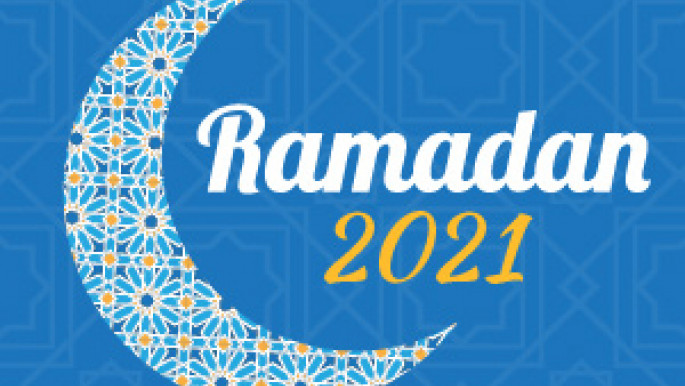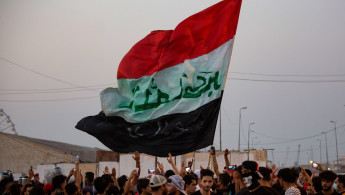The Iraq Report: Kurd-on-Kurd violence as protesters clash with police
A rash of violence has engulfed Iraq's autonomous Kurdistan region as Kurdish separatists loyal to Turkey's outlawed Kurdistan Workers' Party, better known by their Kurdish acronym of the PKK, killed several Iraqi Kurdish fighters. The attacks against the Peshmerga, the Kurdistan Regional Government's (KRG) military forces, have caused the KRG to start military operations against the Turkish Kurdish elements.
Meanwhile, despite Iraqi leaders attempting to hail the clearing of Baghdad's central Tahrir Square of protesters, demonstrators have once more taken to the streets in violent clashes against security forces.
Despite the protest movement that began in October 2019 rallying thousands of disaffected Iraqis, primarily youth from central Iraq and the Shia-dominated south, the fundamental issues that gave rise to those demonstrations have yet to be addressed and no one has been held accountable for killing hundreds of civilian protesters.
Iraqi Kurds turn against PKK
Already under pressure from a Turkish military incursion into northern Iraq where their main headquarters are hidden amongst the mountains, the PKK have now drawn the ire of the Kurdistan Regional Government that has deployed its military forces against Turkey’s Kurdish separatists.
The Turkish offensive, dubbed Operation Claw, has been ongoing since 15 June and began with an aerial assault lasting two days before Turkish land forces moved in to engage the PKK militants in deadly battles in Iraq's northern mountains.
 |
Tensions between the rival cross-border Kurdish factions have been simmering and have now exploded into outright fratricide |  |
While both the KRG in Erbil and the federal government in Baghdad have criticised Ankara for invading territory under the authority of the autonomous Kurdistan region, they have both reiterated Turkey's right not to be attacked by PKK militants using Iraq as a base from which to strike at Turkish interests.
However, tensions between the rival cross-border Kurdish factions have been simmering and have now exploded into outright fratricide.
In coordination with the Turkish government, and in an attempt to impose a Kurdish solution onto the problem, KRG Prime Minister Masrour Barzani first dispatched the Peshmerga west of the Qandil mountains earlier this year where the PKK are known to be dug in.
The reasoning behind this move was that the PKK were deemed to be a destabilising force to the ambitions of the KRG which has significant economic and political links with Turkey. The landlocked region is heavily reliant upon Turkish imports for its survival.
Barzani then deployed Peshmerga special forces to the Gare mountains in October after a Kurdish security official was assassinated by the PKK.
 |
|
| Read more: Diplomatic spat with Turkey intensifies after deadly drone strike |
The Gare mountains are used as a base by the PKK, and the deployment west of Qandil was also seen as antagonistic to the Kurdish militants.
Less than a fortnight ago, the KRG's internal security apparatus, the Asayish, arrested a cell of 17 suspected PKK militants who were allegedly plotting to destabilise Iraqi Kurdistan by attacking diplomatic missions, businesses, and senior officials.
Tensions spiked once more just days ago after the Peshmerga attempted to prevent the PKK from moving around Duhok near the Turkish border. The PKK retaliated by attacking the Peshmerga, killing one fighter and wounding a further two.
While Erbil continues to publicly criticise Ankara for its military incursion, it has also laid blame on the PKK by stating that the militant group has provided a pretext for Turkey to invade territories under its control, causing villages to be evacuated.
 |
The Kurdish populations across much of these modern nation-states are deeply divided and compete with one another for influence and power. |  |
It would seem that the KRG are in an unenviable position. On the one hand, they appear to be assisting Turkey which has a long history of repressing its Kurdish minority and also of being a victim of Kurdish terrorist attacks. On the other hand, their internal Iraqi Kurdish stability is being threatened by external Turkish Kurdish interlopers who have seemingly outstayed their welcome.
What this also potentially highlights are limits of the pan-Kurdish cause. While much lip service is paid to the dream of a Greater Kurdistan incorporating parts of Iraq, Syria, Turkey, and Iran, in reality the Kurdish populations across much of these modern nation-states are deeply divided and compete with one another for influence and power.
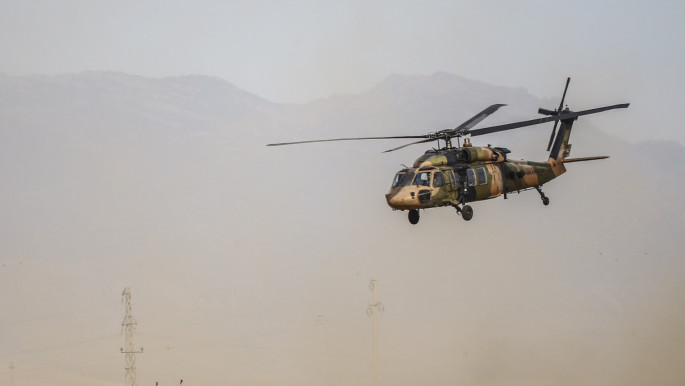 |
|
| Read more: Iraqi Kurdistan could emerge as Turkey-UAE proxy battleground |
The PKK, for instance, actively involves itself in Iraqi Kurdish affairs, siding with the Patriotic Union of Kurdistan (PUK) led by the Talabani clan against their dominant rivals the Kurdistan Democratic Party (KDP) headed by the Barzani clan.
Quite apart from their impact on the local economy, the fact that they attract foreign troops onto Kurdish territory, and their political meddling, this has all caused the KDP-led authorities in Erbil to take a dim view of the PKK’s presence in Northern Iraq.
The conflict in the Kurdish region is also potentially exacerbated by indications that the United Arab Emirates (UAE) is funding the PKK in order to draw Turkey into a draining conflict. An earlier addition of The Iraq Report in June this year discussed KRG intelligence assessments that detailed Emirati funding in support of militant activities against Turkey in Iraq.
This has had the effect of turning the Kurdistan Region into a quagmire of regional and international agendas, complicated by internal discord and an angry neighbour furious that Iraqi territory is being used to attack military and civilian targets on its soil.
Protests have been quelled, but not destroyed
Despite attempts by senior Iraqi officials to show that public anger at chronic unemployment, corruption, and insecurity has subsided, Iraqi activists have once more taken to the streets of Baghdad, Basra, and other cities to show that their movement has not been destroyed.
A year after mass protests calling for an end to government incompetence, corruption, and abuses began, Iraqi authorities cleared Baghdad's central Tahrir Square of protesters and cleared away demonstrator camp sites, paving the way for the square to reopen and for the Jumhuriyya Bridge leading to the Green Zone government compound to be accessible once again.
|
At the end of last month, Iraqi Prime Minister Mustafa al-Kadhimi praised the demonstrators on Twitter and stated that they had left voluntarily for the "restoration of normalcy".
Kadhimi also stated that the next step to ensure the demands of the protesters were met would be "free and fair elections", further adding that "Iraq would never forget its youth".
However, his message seems to have fallen on deaf ears as, days after Tahrir Square and main thoroughfares through the capital were reopened, demonstrators once more descended on their old protest sites and clashed with security forces.
Several hundred demonstrators returned to the capital's main square claiming that they had been betrayed and that promises to listen to their demands were broken. They briefly clashed with police before being dispersed.
In the southern oil-rich city of Basra, 500 protesters threw rocks at police officers in the centre of the city, and again repeated slogans regarding putting an end to corruption, incompetence, and mass unemployment.
 |
It's our revolution and we must continue it, as not a single one of our demands were met! |  |
In Hilla, also in the south, hundreds of students marched with banners decrying the killing and kidnapping of activists in recent months.
"We'll stay here, for the blood of our martyrs and the love of our country," said Abrar Ahmed, a student demonstrator in the city.
"It's our revolution and we must continue it, as not a single one of our demands were met!" she added.
A similar protest took place in the town of Kut, where dozens turned out to demand justice for some 650 demonstrators who have been killed in protest-related violence over the past year.
Unprecedented demonstrations erupted across Baghdad and Iraq's Shia-majority south in October 2019 as protesters called for jobs, basic services, a total overhaul of the ruling class and an end to corruption.
There has been virtually no accountability for the deaths in those rallies while two more activists were gunned down in Kut in recent days.
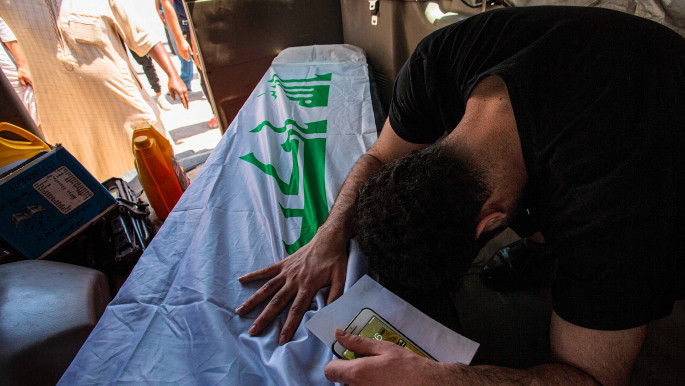 |
| Read more: Anti-corruption activists assassinated with impunity |
The "October Revolution" marked its one-year anniversary less than a fortnight ago, with thousands hitting the streets of southern cities and the capital.
But authorities swiftly reinstated calm, deploying in large numbers in the squares and intersections that were once the hot spots of the anti-government rallies.
Abdallah Ahmed, another student protesting in Hilla on Sunday, insisted the movement was far from over.
"We're not commemorating the revolution – we're continuing it," he told AFP.
Iraq is one of the most oil-rich countries in the world but has suffered chronic water and power shortages for decades, even after promises were made of a better life after the dictatorship of Saddam Hussein was toppled by a US-led invasion in 2003.
Since then, and for almost 20 years, the Iraqi political elite has squandered the country's wealth, engendered rampant corruption, and perpetrated abuses and repressive acts against their own people.
While previous crises were blamed on Al-Qaeda or later the Islamic State group, and the Sunni Arab demographic was suppressed as a result, with the conclusion of those conflicts the Shia-dominated south has come to raise the same complaints as their Sunni countrymen, placing the elite under pressure who have responded with killings and torture.
This has set the scene for more conflict and, unless protester demands are met, violence could once more grip Iraq.
The Iraq Report is a regular feature at The New Arab.Click below to see the full archive:
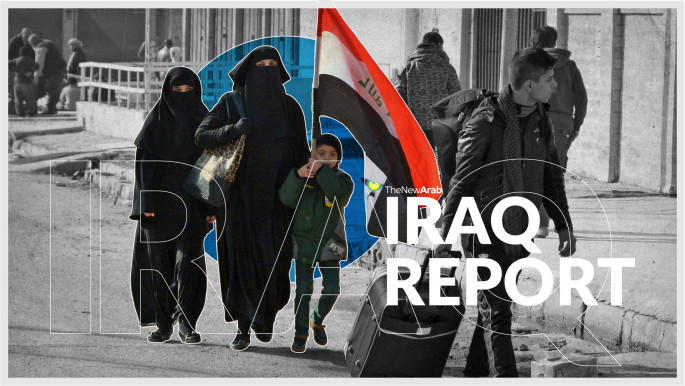 |
